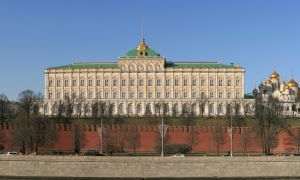• Just 1% of companies have requested the postponement of the payment of their taxes to the state budget
• The strict requirements and the lack of advertising for the campaign have turned a facility for troubled companies into an exclusivist measure, specialists claim
The economic crisis has affected all companies, but only 1% of the them have successfully used the facility granted by the government of postponing the payment of their tax arrears.
Officials of professional associations warn that the exaggerated requirements and the lack of a promotional campaign have turned this measure intended to support companies facing difficulties due to the crisis, into an exclusivist measure, which benefits only select few.
The way things are, out of the 790,000 companies registered with the Trade Registry, only 7,109 would qualify for a delayed payment of the debts to the state budget.
Data from the National Tax Administration Agency (ANAF), provided at our request, show the following state of things: "7109 economic agents applied for the postponement of their tax arrears, amounting to 2,377.9 million lei. 102 applications were rejected, due to their failure to fulfill one or more of the requirements of the Emergency Government Ordinance no. 92/2009".
• Professional associations: the situation is unacceptable
The amount of 2.37 million lei for which amnesty was offered is insignificant compared to the total volume of arrears.
The officials of professional associations consider that this is simply unacceptable.
Dan Matei Agathon, the secretary general of the Confederation of Professional Associations "CONPIROM", stated the following: "It is unacceptable to have only 7000 companies qualify for the deferred payment of their taxes, as most companies have been affected by the crisis. In my opinion, it is the fault of the government and of the Tax Administration Agency for the low number of companies that qualify, because they failed to implement a campaign for advertising this measure to the business environment. We have hundreds of thousands of SMEs, how many of them actually know about this fiscal facility?".
The official of the Conpirom also claims that the professional unions struggled hard to have this facility extend to any company that has a clean tax record, but the excessive bureaucracy and the fact that additional requirements were added later, has drastically lowered the number of companies that qualify.
• Surprises when it comes to the procedures
Cristian Pârvan, the secretary general of the Association of Romanian Business People (AOAR) claims that the requirements of the law only allowed a very small number of companies to qualify for the deferred tax payment: "The terms of the law are very hard to meet. This is why only 1% of the existing companies succeeded in doing so".
The officials of the professional associations claim that there have been cases of companies that requested the deferred payment of their taxes and were then investigated by the inspectors of the Tax Administration.
Furthermore, companies that did obtain the postponement of their tax payments but failed to pay them immediately after the exemption expired, saw the state begin the foreclosure against them.
Ioan Cezar Corâci, the chairman of the professional association UGIR 1903, described another case: "There were situations where companies that applied for the delayed payment of taxes, a few days later received letters from the tax administration notifying them of arrears discovered only after they had submitted their application, which led to the dismissal of those applications. In other cases, where mistaken figures appeared, leading to unpleasant surprises".
• Requirements that applicant companies need to meet
In theory, any company that has a clean tax record and has submitted all the current tax statements can request the postponement of the tax payments. This measure does not apply to insolvent companies. The payment of taxes may not be deferred beyond December 20th of the fiscal year in which the application was submitted. The deadline for submitting applications for the deferred payment of taxes expired on June 30 2010. The facility will expire on December 20th, 2010.
• The legal framework
The legal framework for the application of this facility is represented by the Government Ordinance no. 92/2009 concerning the postponed payment of tax arrears following the results of the economic crisis. The Ordinance has been complemented by the Law no. 363/2009.










































